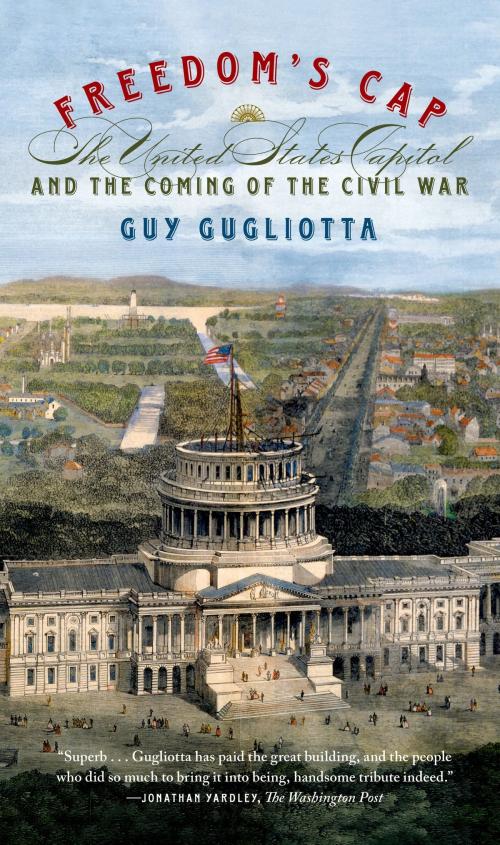Freedom's Cap
The United States Capitol and the Coming of the Civil War
Nonfiction, History, Americas, United States, Civil War Period (1850-1877), 19th Century| Author: | Guy Gugliotta | ISBN: | 9781429969222 |
| Publisher: | Farrar, Straus and Giroux | Publication: | February 28, 2012 |
| Imprint: | Hill and Wang | Language: | English |
| Author: | Guy Gugliotta |
| ISBN: | 9781429969222 |
| Publisher: | Farrar, Straus and Giroux |
| Publication: | February 28, 2012 |
| Imprint: | Hill and Wang |
| Language: | English |
The modern United States Capitol is a triumph of both engineering and design. From its 9-million-pound cast-iron dome to the dazzling opulence of the President's Room and the Senate corridors, the Capitol is one of the most renowned buildings in the world. But the history of the U.S. Capitol is also the history of America's most tumultuous years. As the new Capitol rose above Washington's skyline, battles over slavery and secession ripped the country apart. Ground was broken just months after Congress adopted the compromise of 1850, which was supposed to settle the "slavery question" for all time. The statue Freedom was placed atop the Capitol's new dome in 1863, five months after the Battle of Gettysburg.
In Freedom's Cap, the award-winning journalist Guy Gugliotta recounts the history and broader meaning of the Capitol building through the lives of the three men most responsible for its construction. We owe the building's scale and magnificence to none other than Jefferson Davis, who remained the Capitol's staunchest advocate up until the week he left Washington to become president of the Confederacy. Davis's protégé and the Capitol's lead engineer, Captain Montgomery C. Meigs, became quartermaster general of the Union Army and never forgave Davis for his betrayal of the nation. The Capitol's brilliant architect and Meigs's longtime rival, Thomas U. Walter, defended slavery at the beginning of the war but eventually turned fiercely against the South.
In impeccable detail, Gugliotta captures the clash of personalities behind the building of the Capitol and the unique engineering, architectural, design, and political challenges the three men collectively overcame to create the iconic seat of American government.
The modern United States Capitol is a triumph of both engineering and design. From its 9-million-pound cast-iron dome to the dazzling opulence of the President's Room and the Senate corridors, the Capitol is one of the most renowned buildings in the world. But the history of the U.S. Capitol is also the history of America's most tumultuous years. As the new Capitol rose above Washington's skyline, battles over slavery and secession ripped the country apart. Ground was broken just months after Congress adopted the compromise of 1850, which was supposed to settle the "slavery question" for all time. The statue Freedom was placed atop the Capitol's new dome in 1863, five months after the Battle of Gettysburg.
In Freedom's Cap, the award-winning journalist Guy Gugliotta recounts the history and broader meaning of the Capitol building through the lives of the three men most responsible for its construction. We owe the building's scale and magnificence to none other than Jefferson Davis, who remained the Capitol's staunchest advocate up until the week he left Washington to become president of the Confederacy. Davis's protégé and the Capitol's lead engineer, Captain Montgomery C. Meigs, became quartermaster general of the Union Army and never forgave Davis for his betrayal of the nation. The Capitol's brilliant architect and Meigs's longtime rival, Thomas U. Walter, defended slavery at the beginning of the war but eventually turned fiercely against the South.
In impeccable detail, Gugliotta captures the clash of personalities behind the building of the Capitol and the unique engineering, architectural, design, and political challenges the three men collectively overcame to create the iconic seat of American government.















